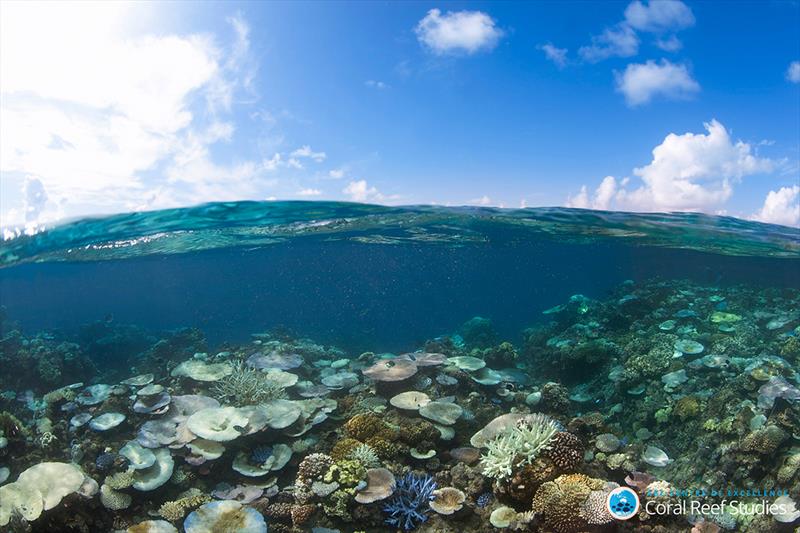
"Weeding" coral reefs
by GBRMPA Media 28 Jul 2018 06:18 UTC

Climate induced coral bleaching events are the greatest threat to coral reefs. As shown here, there is extensive bleaching of hard and soft corals at Moore Reef following sustained heat stress in March 2017 on Great Barrier Reef © ARC CoE for Coral Reef Studies / Ciemon Caballes
This week will see significant quantities of seaweed physically removed from the fringing reef at Magnetic Island's Florence Bay, in north Queensland, in a bid to give its coral an opportunity to both recover and grow.
Great Barrier Reef Marine Park Authority reef Conservation Actions Assistant Director Dr Mark Read said it was part of a trial looking at ways marine managers can take action in the water to protect corals.
"Large quantities of seaweed — also known as macroalgae — can overgrow and smother coral after impacts from bleaching, cyclones, and crown-of-thorns, hindering the recovery of coral," he said.
"When seaweed overgrows it can block the sunlight coral needs to be healthy and reduce the space available for new baby coral to settle and grow on.
"This trial focuses on whether the health of a section of fringing reef can be enhanced by removing the overgrown seaweed, with the results used to inform whether this could be applied at larger scales.
"Initially, we will assess how much seaweed was removed and whether there has been any positive change to the coral and fish population at the site.
"At the conclusion of coral spawning season in late 2018, further surveying will be undertaken to determine the success and effects of the algae removal on coral spread and growth.
"We want to find out if we can scale-up and replicate the process in a larger area using more people and perhaps other equipment to further improve the process.
"These localised actions to protect corals are important to local communities and local reefs — it's part of a suite of on-ground initiatives to enhance resilience."
Approximately 12 staff from the Marine Park Authority and Queensland Parks and Wildlife will be scuba diving and snorkeling over three days, armed with scraping equipment, protective gear and dive catch bags.
The seaweed will be removed from 20 metre by 20 metre sections of Florence Bay and placed in floating collection buckets before being identified, weighed and disposed of at a suitable location on land.
Pre-trial monitoring of the site was undertaken to determine what species of coral and fish were present and to monitor any changes through time after removing the seaweed.
The trial is a partnership between the Great Barrier Reef Marine Park Authority and Queensland Parks and Wildlife Service.
Reef intervention work like this is one of the key actions in the Marine Park Authority's Reef Blueprint, which outlines the top 10 actions to protect the Reef. It responds to unprecedented pressures faced by the Reef in recent years.